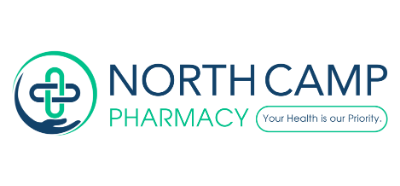
Cancer is not usually inherited, but some types – mainly breast, ovarian, colorectal and prostate cancer – can be strongly influenced by genes and can run in families.
We all carry certain genes that are normally protective against cancer. These genes correct any DNA damage that naturally happens when cells divide.
Inheriting faulty versions or "variants" of these genes significantly raises your risk of developing cancer, because the altered genes cannot repair the damaged cells, which can build up and form a tumour.
BRCA1 and BRCA2 are examples of genes that raise your cancer risk if they become altered. Having a variant BRCA gene greatly increases a woman's chance of developing breast cancer and ovarian cancer. They also increase a man's chance of developing male breast cancer and prostate cancer.
BRCA genes are not the only cancer risk genes. Researchers recently identified more than 100 new gene variants associated with an increased risk of breast, prostate and ovarian cancer. Individually, these new gene variants only slightly increase the risk of cancer, but a combination could mean a high risk overall.
If you or your partner have a high-risk cancer gene, such as an altered version of BRCA1, it can be passed on to any children you have.
Speak to a GP if cancer runs in your family and you're worried you may get it too. They may refer you to a local genetics service for an NHS genetic test, which will tell you if you have inherited one of the cancer risk genes.
This type of testing is known as predictive genetic testing. It's "predictive" because a positive result means you have a greatly increased risk of developing cancer. It does not mean you have cancer or are definitely going to develop it.
You may be eligible for this NHS test if the faulty gene has already been identified in one of your relatives, or if there is a strong family history of cancer in your family.
You can also have NHS genetic testing for faulty BRCA genes if you’re 18 years or older and have 1 or more Jewish grandparent. This is because having Jewish ancestry increases your risk of having a faulty BRCA gene.
Find out more about the NHS Jewish BRCA testing programme.
Not everyone who is eligible for the NHS test will want to have it. It's a personal decision, and should only be made after you've had genetic counselling and talked through what having the test means, how you may feel and how you will cope.
A positive result means you can take steps to manage your risk of developing cancer.
You can make certain lifestyle changes to lower your risk, have regular screening and have preventative treatment.
Knowing the result may reduce any stress and anxiety that comes from not knowing.
The results of some genetic tests are inconclusive. This means doctors may identify a variation in a gene, but not know what effect it may have.
A positive result may cause permanent anxiety. Some people would rather not know about their risk and only want to be told if they actually develop cancer.
There are usually 2 steps to genetic testing:
When there are no affected relatives available, full testing of BRCA1 and BRCA2 may be possible for those with at least a 10% chance of having a faulty gene. This usually means having a very strong family history of early onset breast and particularly ovarian cancer. It can take 4 to 8 weeks or longer to get the result.
If your predictive genetic test result is positive, it means you have a faulty gene that raises your risk of developing cancer.
It does not mean you are guaranteed to get cancer – your genes only partly influence your future health risks. Other factors, such as your medical history, lifestyle and your environment, also play a role.
If you have one of the faulty BRCA genes, there is a 50% chance you will pass this on to any children you have and a 50% chance that each of your siblings also has it.
You may want to discuss your results with other members of your family, who may also be affected. Staff at the genetics clinic will discuss with you how a positive or negative result will affect your life and your relationships with your family.
You can read more about BRCA1 and BRCA2 in the beginner's guide to BRCA1 and BRCA2 (PDF, 866kb) produced by The Royal Marsden NHS Foundation Trust.
Insurance companies cannot ask you to disclose the results of predictive genetic tests for the majority of policies, but this may change in the future.
If your test result is positive, you have a range of options to manage your risk. Risk-reducing surgery is not the only option.
Ultimately, there's no right or wrong answer about what you should do – it's a decision only you can make.
If you have the faulty BRCA1/2 gene, it's a good idea to be aware of changes in your breasts. Find out more about being breast cancer aware.
This advice applies to men with a faulty BRCA2 gene too, as they are also at increased risk of breast cancer (although to a lesser extent).
In the case of breast cancer, annual breast screening in the form of mammograms and MRI scans can also monitor your condition and catch cancer early, if it does develop.
Detecting breast cancer at an early stage means it may be easier to treat. The chance of making a full recovery from breast cancer, especially if it is detected early, is relatively high compared with other forms of cancer.
Unfortunately, there's currently no reliable screening test for ovarian cancer or prostate cancer. Read more about screening for prostate cancer. However, annual PSA tests for prostate cancer may benefit men who carry the faulty BRCA2 gene.
Changes in your lifestyle can sometimes reduce your individual cancer risk. These include taking plenty of exercise and eating a healthy diet.
If you have a faulty BRCA gene, be aware of other factors that could increase your risk of breast cancer. It's recommended that you avoid:
The National Institute for Health and Care Excellence (NICE) also recommends that women with a family history of breast cancer breastfeed their children, if possible.
Find out more about things that may help to prevent ovarian cancer.
NICE recommends medicines called tamoxifen, raloxifene and anastrozole for some women who are at an increased risk of breast cancer.
These can reduce your risk of getting breast cancer for many years.
Find out more about medicine to prevent breast cancer.
Risk-reducing surgery means removing all the tissue (such as the breasts or ovaries) that could become cancerous. Carriers of a faulty BRCA gene may wish to consider a preventative mastectomy.
Women who have risk-reducing mastectomies reduce their risk of developing breast cancer by around 50%. However, a mastectomy is a major operation and recovering from it can be physically and emotionally difficult.
Surgery can also be used to reduce ovarian cancer risk. Women who have their ovaries removed before the menopause not only dramatically reduce their chances of developing ovarian cancer, but also reduce their chances of developing breast cancer by up to 50%.
However, this will trigger early menopause and mean you're not able to have your own children (unless you store eggs or embryos).
If you have not had breast cancer, you’ll be offered hormone replacement therapy (HRT) until you’re about 50 years old. This is to protect against heart disease and thinning of your bones. If you have had breast cancer, you will not be offered HRT.
Read more about surgery to remove the ovaries, including the risks and after-effects.
The risk of ovarian cancer in women who carry a BRCA gene fault does not begin to rise significantly until about the age of 40. Therefore, carriers of the faulty gene who are younger than 40 usually wait to have this operation.
Your genetics unit will not approach your relatives about your result – it will usually be up to you to tell your family.
You may be given a standard letter to share with relatives, which explains your test result and contains all the information they need to be referred for the test themselves.
However, not everyone will want to have the genetic test. Women who are closely related to you (such as your sister or daughter) can have cancer screening without having genetic testing.
Cancer risk genes can be passed on to any children you have. If your predictive genetic test is positive and you want to start a family, you have several options. You can:
If there is not a strong family history of cancer in your family and the faulty gene has not otherwise been identified in any of your relatives, you will not be eligible for the NHS genetic test.
You'll have to pay for it privately if you still wish to have the test. Consider this carefully, because:
If you have a fault (mutation) in one of the BRCA genes, your risk of developing breast cancer and ovarian cancer is greatly increased.
For example, most women in the UK have a 1 in 7 (15%) chance of developing breast cancer in their lifetime.
Out of every 100 women who have a BRCA1 gene mutation:
Out of every 100 women who have a BRCA2 gene mutation:
Women with BRCA mutations are also at increased risk of developing breast cancer at a younger age.
Men with BRCA mutations have an increased risk of getting prostate, breast or pancreatic cancer.
For example, 12 or 13 men in every 100 will get prostate cancer before the age of 80. But out of every 100 men who have the BRCA2 gene mutation, 20 will develop prostate cancer.
The faulty BRCA genes affect around 1 in every 400 people. People of Ashkenazi Jewish descent are at a much higher risk (1 in 40 carry a faulty gene), and people of Sephardi Jewish descent are also at higher risk (around 1 in 140 have a faulty gene).






































